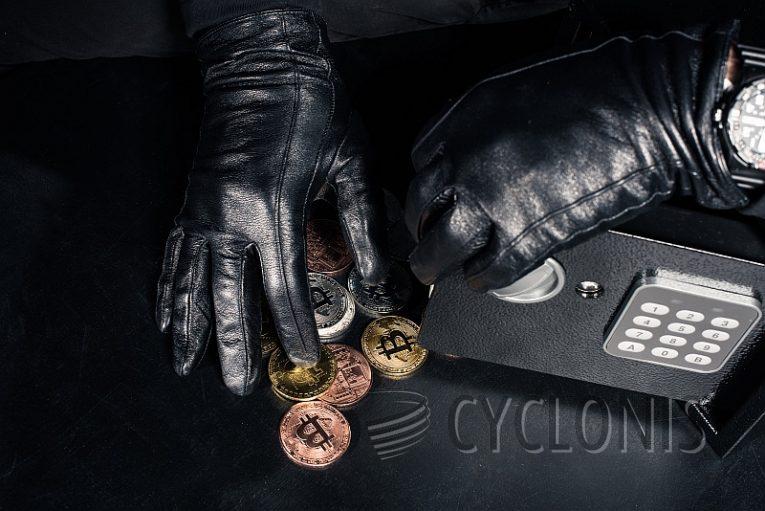Smart Node Chain Scam And How It Tries To Rip You Off

In the fast-paced world of cryptocurrency, online threats and scams have become more sophisticated. One such scam is the Smart Node Chain scheme. Promising innovative solutions for digital wallet issues, this fraudulent platform aims to drain users' crypto assets. Let's break down how this scam works and how to stay safe.
Table of Contents
What is the Smart Node Chain Scam?
The Smart Node Chain scam presents itself as a service provider, claiming to offer a wide range of tools for cryptocurrency users. From fixing wallet issues to enabling staking and token validation, the platform gives the impression of being a one-stop solution for crypto enthusiasts. However, beneath this façade lies a dangerous mechanism designed to drain users' wallets.
Once users connect their digital wallets to the platform, their funds are swiftly transferred to wallets controlled by the scammers. This entire operation happens quietly in the background, making it difficult for victims to detect the theft until it's too late.
How Does the Scam Work?
The scheme is engineered to look legitimate, offering a variety of non-existent services such as recovery of lost assets, buying and selling crypto, or even staking digital currencies. It's common for scammers to lure victims in by creating a sense of urgency around resolving issues in their wallets or offering exciting opportunities like giveaways or promotions.
After a user connects their wallet to the platform, the draining process begins. Cryptocurrency drainers like Smart Node Chain may even target higher-value assets first, giving the appearance that smaller balances are untouched. Unfortunately, once these transactions are initiated, the damage is irreversible.
Cryptocurrency Drainers and Irreversible Losses
The scam's core lies in its ability to drain wallets by transferring crypto funds into addresses owned by the scammers. Due to the decentralized nature of blockchain technology, these transactions are virtually untraceable. Unlike traditional financial institutions, there's no way to reverse these transactions, meaning victims are left without any recourse to recover their stolen assets.
Other Cryptocurrency Scams to Watch For
Smart Node Chain is just one example of the growing number of crypto-specific scams designed to deceive users. Scams like "Hyperliquid (HYPE) Airdrop" or "Claim EIGEN" also use similar tactics, promising airdrops, giveaways, or solutions for wallet issues to lure users into connecting their wallets. These drainers can function through pop-up ads, phishing websites, or even hacked social media accounts.
By leveraging the credibility of legitimate brands or entities, scammers appear trustworthy and convince users to hand over access to their wallets.
Social Media and Malvertising: A Dangerous Combination
One of the most common ways these scams spread is through social media platforms, especially X (formerly Twitter). Scam posts often appear as advertisements or direct messages from seemingly trusted sources. Sometimes, scammers use hacked accounts belonging to well-known entrepreneurs or public figures, adding a layer of credibility to their fraudulent schemes.
Malvertising, or malicious advertising, is another powerful tool scammers use. Pop-up ads often promise benefits like wallet recovery services or new investment opportunities. In some cases, the ads themselves are equipped to drain wallets when users click on them and connect their accounts. Even legitimate websites can be compromised to display these dangerous ads.
Identifying the Signs of a Scam
Online scams have evolved, with some becoming increasingly sophisticated in their design and execution. While many still contain obvious errors or inconsistencies, others are nearly indistinguishable from legitimate services. Because of this, it's crucial to approach online offers with caution.
Always be wary of unsolicited offers or ads that seem too good to be true. Whether it's a promise of recovering lost crypto assets or an exciting airdrop, remember that legitimate services will not require you to connect your wallet without careful verification.
How to Protect Yourself from Crypto Scams
Caution is your best defense against falling victim to scams like Smart Node Chain. Here are a few key steps you can take to keep your assets safe:
- Avoid interacting with suspicious ads and pop-ups: If a webpage you visit displays unsolicited pop-ups or ads offering services for cryptocurrency wallets, it's best to steer clear. These ads can be engineered to appear legitimate but could lead you straight into a scam.
- Double-check URLs and avoid typosquatting sites: Some scammers create fake websites that look almost identical to real ones, hoping you'll mistype the URL. Always double-check the web addresses you're visiting, especially when dealing with sensitive financial information.
- Be cautious with social media messages: Scammers often use direct messages or posts on platforms like X to lure victims. If you receive an unexpected message from an account, even one that appears to belong to a trusted individual, be wary.
- Stick to official download sources: Download crypto-related apps, wallets, and tools only from verified sources like official websites or trusted app stores. Avoid third-party download sites, as they can host malicious versions of legitimate software.
- Regularly update your software: Keeping your operating system and apps updated helps protect against vulnerabilities that scammers might exploit. Many updates include security patches that enhance the safety of your digital assets.
Bottom Line
The Smart Node Chain scam is just one example of how crafty fraudsters have become in targeting cryptocurrency users. By claiming to offer tools for wallet recovery, staking, and other crypto services, they trick users into connecting their wallets, only to drain their assets.
To protect yourself, always remain cautious when encountering unfamiliar online platforms, pop-up ads, or social media offers. By staying informed and following safe browsing practices, you can avoid falling prey to schemes like Smart Node Chain and keep your crypto assets secure.








